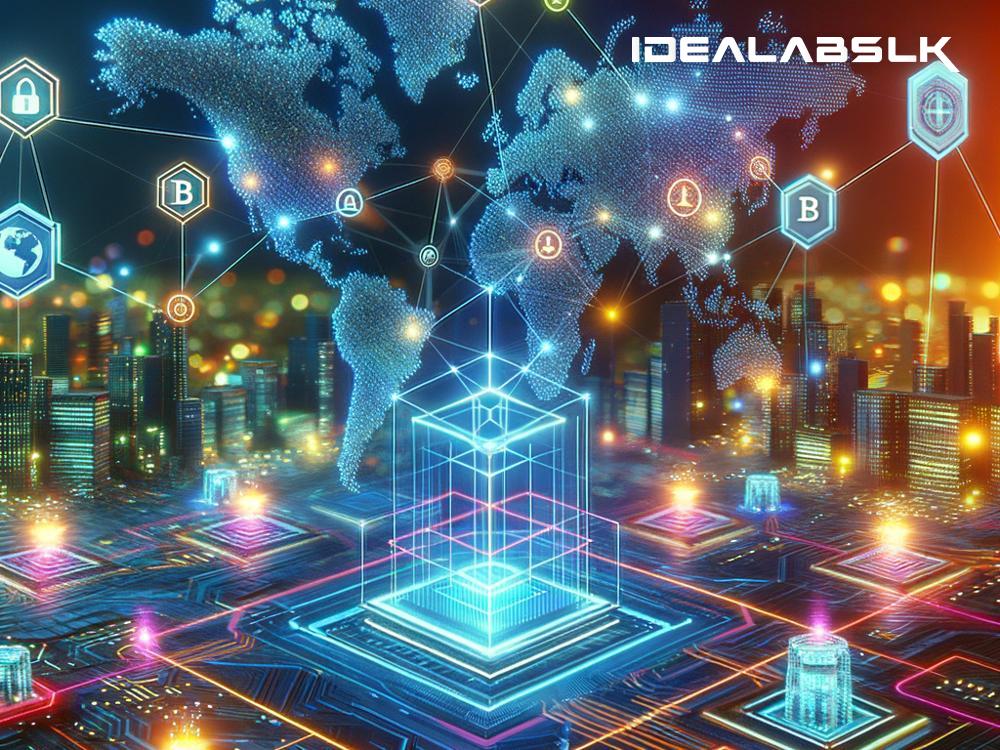Unlocking the Future: Blockchain's Role in Enhancing E-commerce Security
In the bustling digital marketplace where convenience meets global shopping carts, the e-commerce sector continues to flourish. However, with great digital power comes the immense responsibility of safeguarding transactions and consumer data. Enter the blockchain, a technology with the potential to revolutionize e-commerce security, ushering in an era of enhanced trust and transparency. As we navigate through this digital evolution, let's explore the future of blockchain in e-commerce security, breaking down complex concepts into simple, digestible information.
What is Blockchain?
Imagine a digital ledger that's accessible by many, but tamper-proof and secure. That's blockchain. At its heart, blockchain is a series of interconnected blocks, each containing a bundle of transactions. Once a block is filled with information, it links to the previous block, forming a chain. This technology is best known for underpinning cryptocurrencies like Bitcoin, but its potential spans far beyond, offering transformative solutions for e-commerce security.
The Current State of E-commerce Security
Today's e-commerce sector faces multifaceted security challenges, from data breaches and fraud to counterfeit goods. Traditional security measures often fall short in addressing these issues comprehensively. As transactions soar, especially in today's digital-first world, the limitations of current security mechanisms become glaringly apparent. This is where blockchain steps in, promising a more secure future for e-commerce.
Enhancing Trust and Transparency
Blockchain's inherent characteristics of decentralization, immutability, and transparency could redefine trust in online shopping. Decentralization ensures that no single entity has control over the entire blockchain, reducing the risk of data manipulation. Immutability means once data is recorded on the blockchain, it cannot be altered or deleted, fostering an environment of trust. Transparency allows all parties to trace transactions, ensuring authenticity and reducing the chances of counterfeit goods.
Streamlining Payment Processes
Blockchain could revolutionize payment processes, making them not only more secure but also faster and more cost-efficient. Traditional online transactions typically involve multiple intermediaries, each posing potential security risks and adding transaction fees. Blockchain's ability to facilitate peer-to-peer transactions eliminates these intermediaries, directly connecting buyers and sellers. This not only enhances security but also reduces transaction costs and speeds up the payment process.
Tackling Counterfeit Goods
The e-commerce landscape is continuously plagued by counterfeit goods, tarnishing brand reputation and consumer trust. Blockchain's transparent and immutable nature could be the key to combating counterfeits. By recording a product's journey from manufacture to sale on the blockchain, both sellers and buyers can verify its authenticity. This transparency ensures that consumers receive genuine products, directly impacting brand trust and loyalty.
Data Security and Personal Privacy
Data breaches are a looming threat in the e-commerce world, with consumers increasingly wary of sharing personal information online. Blockchain offers a solution by enabling secure and anonymous transactions. Personal data is not stored centrally, but rather on a decentralized network, significantly reducing the risk of data breaches. Furthermore, blockchain can give consumers more control over their personal information, choosing what to share and with whom, thereby enhancing privacy.
The Road Ahead: Challenges and Possibilities
While blockchain promises a more secure and trustworthy e-commerce environment, there are challenges ahead. Scalability, regulatory hurdles, and the need for a shift in mindset are among the barriers to widespread adoption. Despite these challenges, the potential of blockchain in revolutionizing e-commerce security is immense.
In the journey towards a more secure digital marketplace, collaboration between technology providers, businesses, and regulatory bodies is crucial. Education and awareness will play key roles in overcoming resistance to change, unlocking the full potential of blockchain in e-commerce security.
Conclusion
The future of e-commerce security gleams brightly with the promise of blockchain technology. By enhancing trust, transparency, payment processes, and tackling counterfeit goods, blockchain stands as a formidable solution to current security challenges. As we move forward, embracing this technology could not only redefine the security landscape but also elevate the overall e-commerce experience for both businesses and consumers. The road ahead may have its bumps, but the destination—a secure, transparent, and trustworthy digital marketplace—is well worth the journey.

